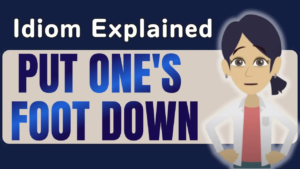Have you ever completely reversed your opinion on something you once firmly believed?
A significant shift in one’s feelings, opinions, or attitudes about something or someone.
Understanding idioms can be challenging because they rarely mean what their words literally suggest. “A change of heart” has nothing to do with cardiac surgery but instead describes a profound transformation in how we feel or think about something.

This powerful expression uses the heart as a symbol of our emotional core, where our deepest feelings reside.
When someone experiences a “change of heart,” they’ve undergone a genuine shift in perspective that may alter their decisions or actions.
Such transformations often occur through new information, personal experiences, or moments of empathy that challenge long-held beliefs.
Why Idioms Matter
Idioms appear in casual chats, formal discussions, and even well-known works of literature. If you misunderstand or misuse them, confusion may follow.
Grasping idioms allows you to participate confidently in conversations with native speakers. Rather than pausing to translate word-for-word, you can absorb the intended message and respond smoothly.
Below are a few reasons why familiarity with idioms can transform your language learning journey:
- Everyday Relevance: People naturally sprinkle idioms into speech.
- Clarity in Interaction: Recognizing these phrases helps prevent misunderstandings.
- Cultural Insight: Many idioms have roots in a region’s history or cultural norms.
- Enhanced Fluency: Understanding these expressions allows you to express ideas with greater nuance.
Paying attention to idioms is an excellent way to refine your skills and build a deeper connection with English speakers.
Decoding the Meaning
At its core, “a change of heart” means modifying how you feel or think about something.
You might have held a certain opinion or attitude for years, only to find new information, a personal experience, or a sudden realization shifting that stance dramatically.
This idiom revolves around the heart as a powerful symbol of emotion. In many cultures, the heart represents one’s emotional center, linking decisions or beliefs to intense personal feelings.
Consider these key points:
- Definition: A clear shift in opinion or feelings.
- Underlying Symbolism: The heart often denotes emotions and deeply held convictions.
- Reasons: Such changes can occur because of exposure to new perspectives, significant life events, or gradual personal growth.
Understanding the essence of “a change of heart” allows you to follow conversations where someone’s transformation of viewpoint plays a central role.
Whenever you detect a major shift in sentiment, you can identify it as a prime example of this idiom in action.
Daily Uses
Sometimes, “a change of heart” appears in mundane scenarios. Other times, it shows up in more serious situations that affect relationships or personal convictions.
Below are a few examples:
- Food Preferences:
Someone who once detested sushi might taste a fresh, high-quality roll and discover a new fondness for it.
Previously, they avoided it at all costs, but after one pleasant dining experience, they have a genuine change of heart. - Leisure Activities:
If an individual believed hiking was dull and uncomfortable, they might one day go on a trail with friends.
The fresh air, camaraderie, and sense of accomplishment could alter their perspective, revealing unexpected enjoyment. - Interpersonal Relationships:
A person who initially felt indifferent toward a new acquaintance might develop a close friendship over time.
Through meaningful conversations or shared activities, they realize their attitude has undergone a marked transformation.
In all these cases, “a change of heart” implies not just trying something new, but also experiencing a genuine shift in sentiment.



This makes it a handy phrase for describing any notable reorientation of opinion, whether small or life-changing.
John & the Stray Kitten Tale
To illustrate “a change of heart,” let’s look at a short story about a man named John. He had a longstanding dislike of cats, calling them unfriendly and inconvenient.
One rainy evening, he found a tiny, shivering kitten on his doorstep. Despite his aversion, he could not turn away from this vulnerable creature, so he welcomed it inside.
In the following days, he recognized the kitten’s warmth and affection, contrasting sharply with his earlier assumptions. Before long, John became deeply attached to the cat, even calling it his cherished companion.
This swift transformation shows how easily a steadfast belief or emotion can give way to compassion or understanding. John’s experience underscores the notion that we all carry the potential to change.
Lessons Learned:
- Empathy as a Catalyst: A single interaction, such as finding a helpless animal, can spark new feelings.
- Growth Over Time: Prolonged exposure to something once disliked can pave the way for acceptance.
- Realizing Misconceptions: First impressions sometimes fail to capture the truth of a situation.
John’s story demonstrates how a heartfelt experience can inspire someone to rethink preconceived notions.
It resonates with the many times individuals find themselves reevaluating a perspective they previously held as unshakable.
History of “Change of Heart”
The expression “a change of heart” can be traced back to the 16th century. Older writings in English used the heart metaphor to describe emotions long before modern times.
Writers, playwrights, and everyday speakers recognized the heart as central to personal feelings. When a character displayed a sudden shift in viewpoint, attributing it to the heart was a natural linguistic step.
In books and movies, “a change of heart” often marks a pivotal point in a plot. A character’s evolution from antagonist to ally, or a sudden reversal of values, is sometimes signaled by this phrase.



Literary examples and real-life stories reveal that dramatic changes in opinion carry emotional weight.
Audiences typically relate to these moments because they capture an authentic human experience: the power of new insight or empathy to alter beliefs.
Similar & Opposite
Learning related phrases can further refine your communication. Below are a few idiomatic expressions akin to “a change of heart,” along with some that convey the opposite.
Similar Expressions:
- A change of mind: Highlights a shift in a decision or plan.
- A turnaround: Suggests a complete reversal of an attitude or outcome.
- A shift in perspective: Implies viewing something from a fresh angle.
Opposite Expressions:
- Sticking to one’s guns: Refusing to back down from a stance.
- Standing firm: Remaining unwavering in belief or choice.
- Unchanging: Suggests no alteration has occurred at all.
Related Idioms:
- To have a change of tune: Emphasizes an obvious switch in attitude.
- To do a one-eighty: Denotes a complete pivot away from the original position.
- To see eye to eye: Suggests alignment, which may happen after reconciling differences.
Studying these phrases helps you capture subtle variations of transformation or steadfastness. You can select an expression that best matches the nuance of each situation.
Empathy & Personal Encounters
At times, “a change of heart” emerges because of empathy or unexpected personal experiences. When someone gains fresh insight through a meaningful interaction, their previous stance can shift dramatically.
Consider a political figure who once opposed certain social movements.
After meeting people from those communities, hearing their stories, and recognizing shared humanity, this politician might reverse the stance completely.
Such powerful transformations remind us that humans are capable of growth. When beliefs are based on limited knowledge, real-world encounters can dismantle preconceived ideas.
Analyzing Shifts in Opinion
- Confronting Assumptions: Direct contact with people or ideas can unearth hidden biases or gaps in understanding.
- Emotional Connection: Feeling compassion can lead to reconsidering rigid views.
- Lasting Impacts: A new perspective might change personal behavior, future decisions, or public statements.
These shifts carry weight in policy changes, community relationships, and even global trends, demonstrating how one person’s reconsideration can affect many lives.
In essence, “a change of heart” can transform society when influential figures revise their stances and encourage further conversation.
Symbols & Images
To remember “a change of heart,” picture the heart as a space where personal feelings reside. When this heart “changes,” it signals an internal reorientation.
Some learners find it helpful to envision the heart physically rotating or transforming color, symbolizing new insights. Though it is figurative, this mental image aids recall and underscores the emotional nature of the phrase.
In many cultures, the heart is central to ideas of love, compassion, and emotional well-being. Seeing it as the seat of belief or opinion makes it easier to associate this organ with personal transformation.
Pop Quiz: Check Your Idiom Skills
Change of Heart

Tips to Grow Your Vocabulary
- Jot Down Idioms: Keep a small notebook or digital note where you record new expressions. Each time you discover an idiom like “a change of heart,” include a brief definition and an example of your own.
- Engage with Authentic Materials: Explore articles, interviews, or narratives in which native speakers use idioms in a natural context. Seeing how they appear in real dialogues helps you grasp their emotional impact.
- Practice Aloud: Pronounce each idiom and frame sample sentences to boost memory retention. Reciting phrases and explaining them to yourself can reinforce your understanding.
- Ask for Clarification: If you encounter an unfamiliar idiom, politely ask a teacher, friend, or online community for examples or explanations. Discussing these expressions with others accelerates learning.
By focusing on consistent, real-world interaction with English, you increase your ability to spot and deploy idioms effectively. Over time, you will find your speech naturally incorporating these colorful elements.
Final Thoughts
In summary, “a change of heart” refers to a genuine shift in how someone feels or thinks about a particular subject. Its origins stretch back centuries, emphasizing the heart’s role as a symbol of passion and conviction.
Key Points:
- It signifies an emotional or intellectual shift.
- It draws on the symbolic power of the heart to represent personal beliefs.
- It often arises from new knowledge, empathy, or firsthand experience.
Vocabulary Growth:
- Seek similar expressions like “a shift in perspective” or “a turnaround.”
- Recognize opposite expressions such as “standing firm” when no alteration occurs.
- Incorporate these phrases in daily dialogue to achieve a more nuanced style of English.
Acquiring this idiom and others like it will boost your communication skills.
When you can identify, use, and interpret “a change of heart,” you capture the human capacity for growth—an essential part of understanding language and culture.









Comment